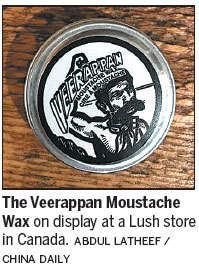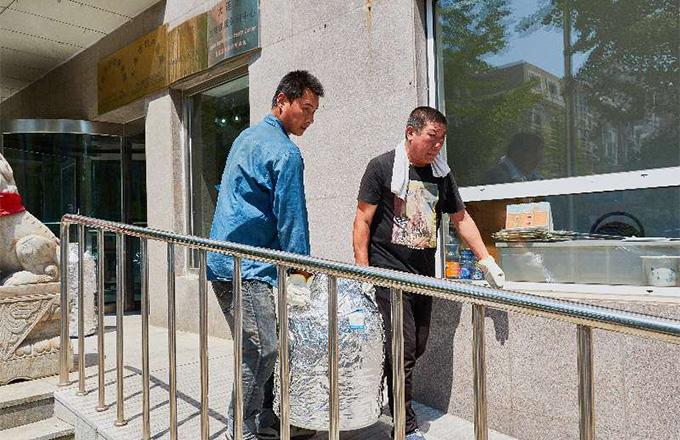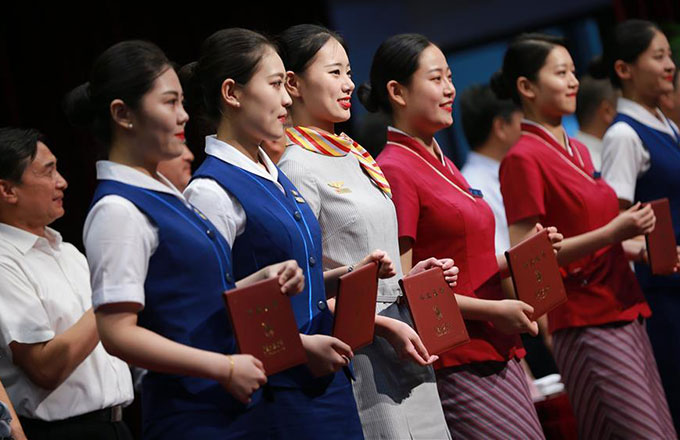Company cashes in on a notorious mustache
Facial hair is not in vogue in the Chinese mainland or Hong Kong.
But that makes no difference to British cosmetics chain Lush. The company is vigorously marketing its widely reviled Veerappan Moustache Wax in Hong Kong.
Reviled, because it is named after one of the world's most notorious elephant poachers and sandalwood smugglers.
Koose Muniswamy Veerappan, who was easily recognizable by his trademark handlebar mustache, terrorized southern India for decades, leaving a trail of hundreds of dead elephants and people.
He was finally killed in a gunbattle in 2004, bringing a yearslong hunt that was reported to have cost India more than $300 million.

Lush began cashing in on Veerappan's notoriety with the launch of the Smuggler's Soul line of products.
It includes perfumes, facial scrubs, shampoo bars and the flagship mustache wax. To cap it off, the company also published a novel, On the Trail of Sandalwood Smugglers.
"The Smuggler's Soul is deep, dangerous and intoxicating. Join us on our journey to the roots of sandalwood and let it enrapture your heart," a promo says on the Lush website.
Why then Lush is using an outcast's name to sell its products?
Business and brand strategist Martin Roll of Martin Roll Co, a Singapore consultancy, thinks it is a bad idea.
"The objective of a strong brand name is to relate to consumers and stakeholders, not to offend them nor to create negative sentiments," he said in an email to China Daily last week.
"Business history is full of bad management judgments around brand naming, so the company should evaluate carefully, quickly and with respect of the sensitivities involved, whether the name is fit for purpose," Roll added.

On Lush's Hong Kong website, the Veerappan wax is listed at HK$135 ($18). It is accompanied by a video of a man styling his mustache.
To be fair to the company, I asked Lush about the logic behind the Veerappan products.
"While Veerappan himself appears on the label artwork, we are in no way glorifying his actions," it said in a statement.
Lush even claimed that its products are in fact, "attempting to highlight the dangers and the realities of sandalwood and the criminality surrounding the trade in this essential oil, which is harvested from a protected tree".
A hard sell, indeed, for a company that prides itself as an animal and nature-friendly establishment.
Veerappan was so despised in his homeland, his name was up for grabs to whoever wanted it, and it looks like Lush didn't waste the opportunity.
Had Lush used the name and image of one of the mustached celebrities such as Hulk Hogan without permission, the company would probably have been sued back to the Stone Age!
Contact the writer at abdul@chinadaily.com.cn
(China Daily 06/20/2017 page2)



















